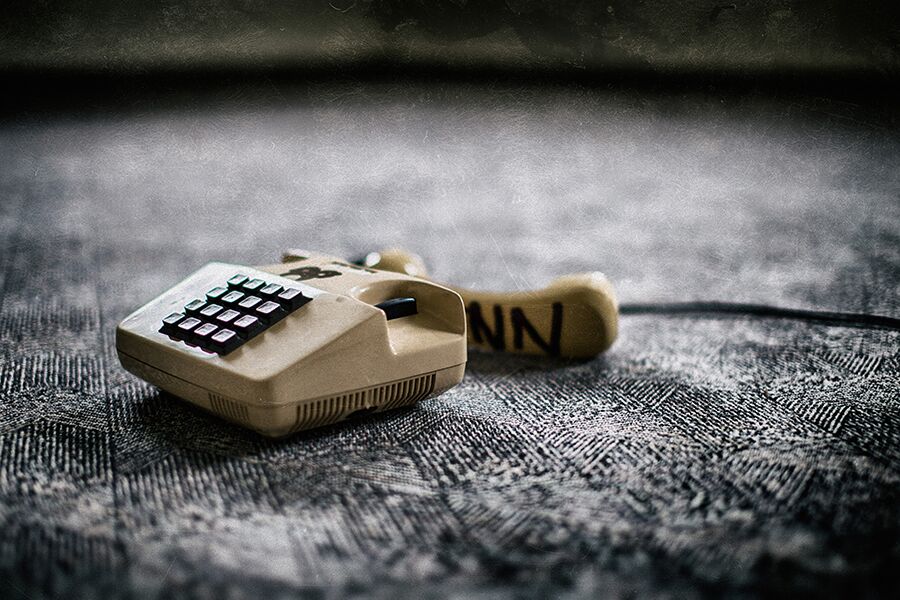Very often, people hear the word ‘free’ and become immediately wary. There is, of course, the knee-jerk reaction that there’s no such thing as a free lunch. In this increasingly cynical, money-centric world filled with false promises and loopholes, it’s an understandable reaction. Still, having even given WHYPAY?’s website or blog a cursory glance, you would know that although we can make no promises about lunch, there is such a thing as a genuinely free conference call.
Can something good be free?
The second misgiving can be a little more pervasive and enduring, though. This is a question of the quality of service that you can expect, when you aren’t actually paying. After all, if you can get the same thing for free, why would anybody pay for a conference call? It’s a fair question, and there are some services which you probably wouldn’t be able to find for free. If you’re after fancy features, you might have to sign up to some sort of paid plan. Luckily, at WHYPAY? we’ve kept this affordable – just £4 per month for the Plus plan, and £8 per month if you want to go Pro and add custom-branding.
Of course, that’s not to say that our Free plan isn’t great. In short, our answer to the question above is: yes, absolutely! Our Free plan meets many people’s and organisations’ needs perfectly. After all, some people just want an easy and simple way of communicating. And conference calling is the solution.
Everyone wants to know whether conference calling is secure
Even if you aren’t looking for fancy features, there is one area which is of concern to every single conference call user. Whether you’re gossiping with your uni friends, organising a surprise Christmas present for your granny, talking over last minute tactics with your coach before a huge event, or courting new millionaire investors, security matters. Everybody wants to have confidence that there is nobody eavesdropping in the conversation. Everybody needs confidence in their call’s security.
When you aren’t paying for the conference bridge, this can give way to suspicions and doubts. You might assume that the only way they can afford to provide the service for free is by cutting corners, and potentially compromising your privacy and security.
Teleconferencing with WHYPAY?: is it safe?
Rest assured, WHYPAY? certainly isn’t cutting any corners. We take security particularly seriously. The service runs inside Nexbridge Communications secure data facility with direct communication with upstream peers.
What’s more, every single WHYPAY? conference call room requires a caller to know both the 8-digit room code and the secure 4-digit PIN. That means that there are over a trillion possible permutations. That makes it very, very hard for somebody to sit and guess the correct combination.
You can read all about how and why we’re so confident about our conference calls’ security in our helpdesk article here.
For those keen to find out about the physical and technological steps we take to guarantee security, read on.
How does WHYPAY? make its conference call service secure?
Are our servers safe?
All of WHYPAY’s servers are located in the UK. our call and data storage servers are in high-security data centres in Manchester and London, and we manage them ourselves. Our web servers are in London, managed by a secure cloud-based third-party supplier.
The data-centres in which we have our servers are certified to a variety of security frameworks, including, but not limited to, ISO 22301, PCI DSS, ISO 14001, ISO 9001, ISO 27001 and ISO 50001.
Accessing our servers and data centres is no mean feat, either physically or remotely. All remote communication to and from our servers is encrypted, and controlled via key exchange.
What about Plan B?
WHYPAY? has a significant backup schedule for its systems. This ranges from 3-hourly all the way up to monthly backups across all of our databases, data storage, web-servers and call systems, both on- and off-site.
Tailor your meetings with security in mind
While the technical side of teleconferencing security is the business of your conference call bridge, ensuring you and your guests have security at the forefront of your minds can make a huge difference. There are definitely things that an organiser can do to make conference calling more secure.
To give you an idea of the kinds of things you should be aware of, here are a few golden rules regarding your dial-in details – that crucial combination of the dial-in number, conference room number, and PIN:
- Take extra care with the dial-in details for your conference calls. Make sure they are only given out to the people who will be joining the meeting.
- Avoid passing the dial-in details on through secretaries or assistants.
- Don’t post them on a public bulletin board.
- Don’t make a note of them on a piece of paper which you then leave lying around.
Finally, you should try to reduce the overall number of callers whom you have invited. Aim to have shorter, smaller meetings, rather than one big one with everybody involved. This will not only be practically helpful in focusing your meetings and boosting productivity, but it makes it easier to control exactly who hears what, keeping your details more private and secure.
By inviting fewer people, you also reduce the risk of invitees being slightly careless, and allowing the access details for the call to fall into the wrong hands.
Security is a mindset: educate your conference callers
Even if the organiser and the conference call bridge take the utmost care, the invitees could still compromise the call’s security. At the end of the day, the most sophisticated security measures only go so far if your work force isn’t educated on the dos and don’ts. It might even be a good idea to include some of these on any invitations or agendas which you circulate ahead the conference call.
Here are a few basic tips you can pass onto your conference call participants:
- don’t write down the full dial-in details anywhere.
- don’t share the dial-in details with anyone whom the organiser hasn’t invited to the call.
- stick to the agenda – don’t bring up any sensitive or confidential information unless you know everyone on the call is privy to it.
- don’t transcribe or make notes if you think any of the material isn’t public knowledge and you haven’t been asked to do so.
Data security and conference calling
You also need to think about any data shared before, during, or after your conference call.
It’s really important that companies (and individuals) realise that data holds inherent value. You wouldn’t leave your cash lying around, so don’t leave your (or your customers’!) data exposed and available for others. Treat it with the same caution you’d exercise with online banking, and sharing your financial details.
Ultimately, where personal data is discussed during a conference call it is the organisations’ responsibility to make sure all the best practices are followed. There’s nothing a conference call bridge can do to guarantee that its users treat data with the respect and caution it merits.
For guidance and information about how small and medium businesses should handle their data, you can look at the Information Commissioner’s Office website.
What about recordings of the conference calls?
A lot of people want to use call recording – and for good reason. Understandably, users want to know how we handle the recordings of their calls.
WHYPAY? deletes every file of recorded calls from its servers fourteen days after the recording takes place, so nobody can hack the system and get access to months’ of information.
By default, only the account-holder is will receive the link to download the conference call recording. When you’re organising the call, you can choose to add other recipients, if you’re happy for them to have access to the recording.
If you want to keep the file, you can of course download and save it. Here again, though, you need to be aware of handling your own data appropriately. Once a recording has been downloaded it should be stored and shared securely. Ideally, you want to avoid sending it via email.
General data security
Since the introduction of GDPR, companies have become much more aware of the value, and even the existence, of the data they hold. More thought is being put into understanding that data. There is also a move toward storing less of it and, protecting what they do store more effectively. Speaking at the introduction of GDPR rulings, David Fathers, Regional General Manager for Crown Records Management opined that “New information governance systems are moving towards a privacy-by-design methodology and that’s a whole different mindset to what we’ve got right now.”
David explains, “If your data is stored in plain text and you’ve put up a firewall, you’re basically putting a sticking plaster on a heart attack. What you want to move towards is having encrypted solution so that your data won’t be readable even if, or, more likely, when, it’s breached.”
This is valuable advice for all data, including materials pertaining to your conference calls.
Make the most of available teleconferencing features to increase your conference call’s security
- Participant Announcements. Turning on the announcement feature (included in our Plus and Pro plans) means that at any given moment, you know exactly who is on the call. There can be nobody lurking unknown and listening in. If any sensitive information is leaked further down the line, by saving the call recording you can check back and see exactly who was dialled in at the time the information was disclosed.
- Call Recording. That brings us neatly to the second security feature you can use. Call recording creates a pretty irrefutable source of evidence of what was said during a meeting. As mentioned, if you have Announcements switched on, you’ll also know exactly who heard it at the time.
- Moderator Controls. These allow you to perform actions like locking the conference call, to prevent anybody else from joining the meeting. You can also hear the number of participants on the call at any given time, to help you keep track of who is hearing what. One really useful tool is removing everybody except moderators from the call. That way, you can guarantee that only your inner circle remains when you’re discussing confidential information.
- Generate a new PIN. This is such a simple way of controlling who can and can’t access the conference call room. If you’ve used the room for a meeting, but you want to be absolutely sure its participants can’t get into the next meeting, you can just create a new PIN. This is really easy. Just head to your Room Summary in your WHYPAY? dashboard. It is as simple as clicking a button.
Conference calls really are secure
Conference calls really are not a cause for security concern – even free ones. There are plenty of measures in place. And you can take extra ones to protect your privacy and your conference calls’ security. Call at ease, for free, and with peace of mind.
Create a FREE Teleconference



